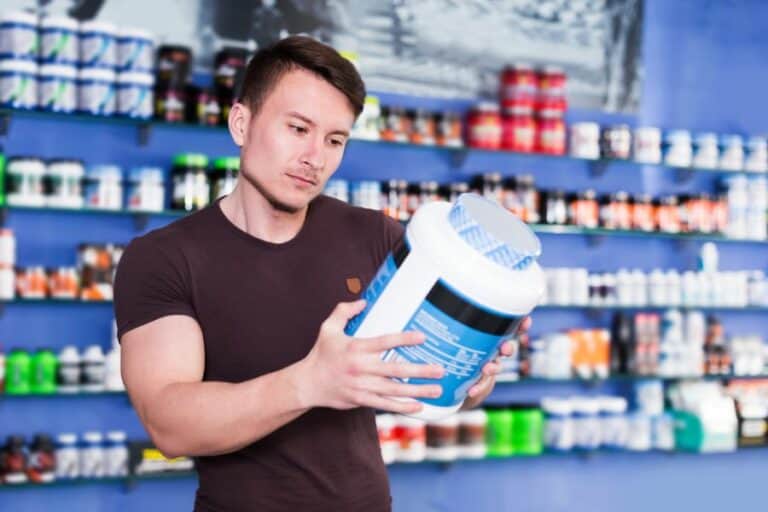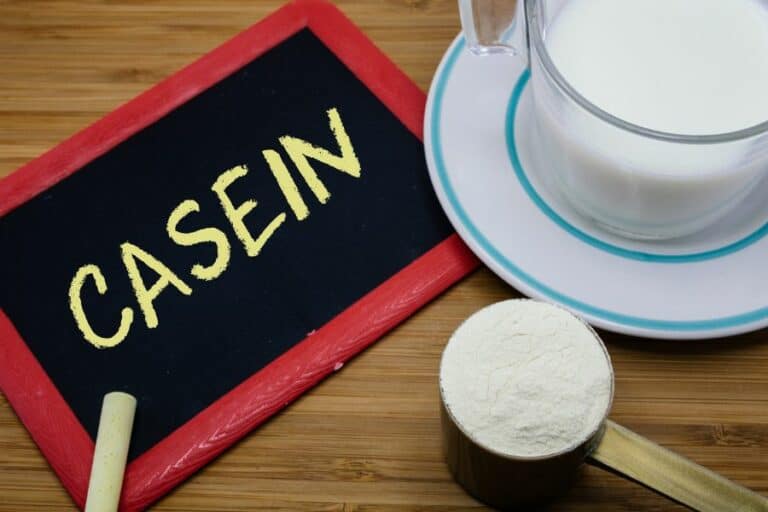Does Pre Workout Make You Sweat More? Here’s The Truth

Does pre-workout make you sweat more? | Understanding Sweating | Pre-Workout Ingredients And Sweating | Creatine And Sweating | Tips
There is a common perception that pre-workout supplements can make you sweat more. In this article, we will explore the physiological mechanisms behind sweating during exercise and examine the impact of pre-workout ingredients on sweat production.
Does pre workout make you sweat more?
Yes, taking pre-workout supplements can make you sweat more. Some ingredients in pre-workout supplements have the potential to increase sweating during exercise.
The phenomenon of excessive sweating is commonly attributed to the stimulants present in most pre-workout supplements. These compounds can raise body temperature, which in turn leads to an increase in sweat production.
To understand this further, it is essential to grasp the body’s natural cooling mechanism through sweating during physical activity.
Understanding sweating: Body’s natural cooling mechanism
Sweating is a vital physiological process that plays a crucial role in regulating body temperature [1]National Library of Medicine: Mechanisms and controllers of eccrine sweating in humans and preventing overheating during exercise.
When our body temperature rises, sweat glands are activated, and sweat is produced. As sweat evaporates from the skin’s surface, it dissipates heat and helps cool the body.
However, when it comes to pre-workout supplements, the ingredients they contain can impact the body’s natural sweating mechanisms.
The thermogenic ingredients present in pre-workouts can raise body temperature, and trigger increased sweating. These ingredients stimulate the sympathetic nervous system, leading to an elevation in heart rate, blood pressure, and sweat production.
Pre-workout ingredients that increase sweat production
Several key ingredients found in most pre-workout supplements have the potential to increase sweat production. Let’s take a closer look at these ingredients:
Thermogenic ingredients
Thermogenic ingredients are commonly used in pre-workout supplements to boost fat metabolism and increase energy expenditure. In plain speak, these pre-workout ingredients promote fat burning.
By stimulating the body’s heat production, these ingredients can lead to an elevation in body temperature and subsequently result in increased sweating. Some thermogenic ingredients found in pre-workout supplements include:
- Caffeine: Caffeine is a central nervous system stimulant. Apart from its energizing effects caffeine is also known for its thermogenic properties [2]ScienceDirect: Caffeine: a double-blind, placebo-controlled study of its thermogenic, metabolic, and cardiovascular effects in healthy volunteers. Caffeine in pre-workouts can increase metabolic rate and raise body temperature, leading to increased sweat production.
- Catechins (Green Tea Extract): Another ingredient that can cause sweating is green tea extract which is abundant in catechins. Catechins are known to increase metabolism and the oxidation of fat, leading to the production of heat and potentially more sweating. The potential fat burn is one of the primary reasons for the addition of catechins in pre-workout supplements.
- Capsaicin/Capsaicinoids: Capsaicin, which is obtained from pepper extracts, is famous for its hot taste. It has the ability to raise body temperature and activate sweat glands due to its thermogenic properties, which can cause more sweating.
- Garcinia Cambogia: Garcinia Cambogia, a tropical fruit extract, is commonly included in pre-workout supplements due to its potential role in promoting fat burning. As a thermogenic ingredient, garcinia cambogia can also increase body temperature and contribute to sweat production.
Nitric oxide boosters
Many pre-workout brands contain ingredients that boost nitric oxide production. Nitric oxide boosters are not commonly associated with excessive sweating.
Nitric oxide boosters can enhance overall exercise performance by acting as a vasodilator, widening blood vessels, and improving blood flow to muscles. This leads to a more intense workout. In an indirect way, the improvement in blood flow and increase in heart rate may result in increased sweat production.
Some common nitric oxide boosters found in pre-workout supplements include:
- Beta-Alanine: Beta-alanine, an amino acid, is known to improve endurance and reduce muscle fatigue. Although it may not directly increase sweat production, it has been associated with a potential side effect of causing body odor when metabolized, which can be perceived as an increase in sweat-related issues.
- L-Citrulline and L-Arginine: These are amino acids that are often included in pre-workout supplements for their vasodilatory effects. Both are not directly linked to excessive sweating. However, they may contribute indirectly to increased sweating by improving blood flow, raising the heart rate, and facilitating more intense workouts.
Artificial Sweeteners
Some pre-workout supplements contain artificial sweeteners to enhance taste without adding excessive calories.
The body does not have any biological use for artificial sweeteners. Therefore, artificial sweeteners are expelled through urine or sweat [3]Dermatology Consultants of Short Hills: Dietary Habits Affecting Your Skin. Naturally, if you are consuming specific pre-workout brands that add artificial sweeteners, you may find yourself sweating more.
Be sure to read the nutrition label and ingredient list carefully to know the type and quantity of added sugars in your pre-workout. Ideally, opt for pre-workout supplements that are free from artificial sweeteners.
Can creatine in pre-workout supplements make you sweat?
No, creatine in any pre-workout supplement is not linked to excessive sweating. In fact, creatine may have the opposite effect.
Creatine supplements tend to reduce the body’s thermoregulatory and cardiovascular responses during exercise in higher temperatures. Research has observed [4]PubMed: Putting to rest the myth of creatine supplementation leading to muscle cramps and dehydration that creatine can help improve performance in hot and humid conditions by helping maintain hematocrit, regulating body temperature, and reducing heart rate and sweat rate during exercise.
Further, creatine can enhance intracellular water retention, which aids in maintaining hydration and a steady body temperature. This potentially lowers sweat rate and core body temperature.
Tips for managing excessive sweating during workouts
Here are a few tips that help you manage or reduce excessive sweating when you are on a pre-workout supplement routine:
- Look for stimulant-free pre-workout supplements that won’t make you sweat excessively.
- Opt for creatine-based pre-workouts that may reduce sweating.
- Increase your body’s response to heat with regular hydration habits
- Take electrolytes before, during, or after workouts to help with sweat loss
- Cool your body down by consuming cold drinks or taking a cool shower after workouts
- Dress appropriately for the weather and for the type of exercise you are doing
- Wear breathable clothing to help reduce sweating
Conclusion
Pre-workout supplements can indeed make you sweat more due to the inclusion of thermogenic ingredients and the potential effects of stimulants. However, it’s important to note that individual responses may vary, and excessive sweating can also be influenced by other factors such as environmental conditions and personal characteristics.
References
| ↑1 | National Library of Medicine: Mechanisms and controllers of eccrine sweating in humans |
|---|---|
| ↑2 | ScienceDirect: Caffeine: a double-blind, placebo-controlled study of its thermogenic, metabolic, and cardiovascular effects in healthy volunteers |
| ↑3 | Dermatology Consultants of Short Hills: Dietary Habits Affecting Your Skin |
| ↑4 | PubMed: Putting to rest the myth of creatine supplementation leading to muscle cramps and dehydration |







